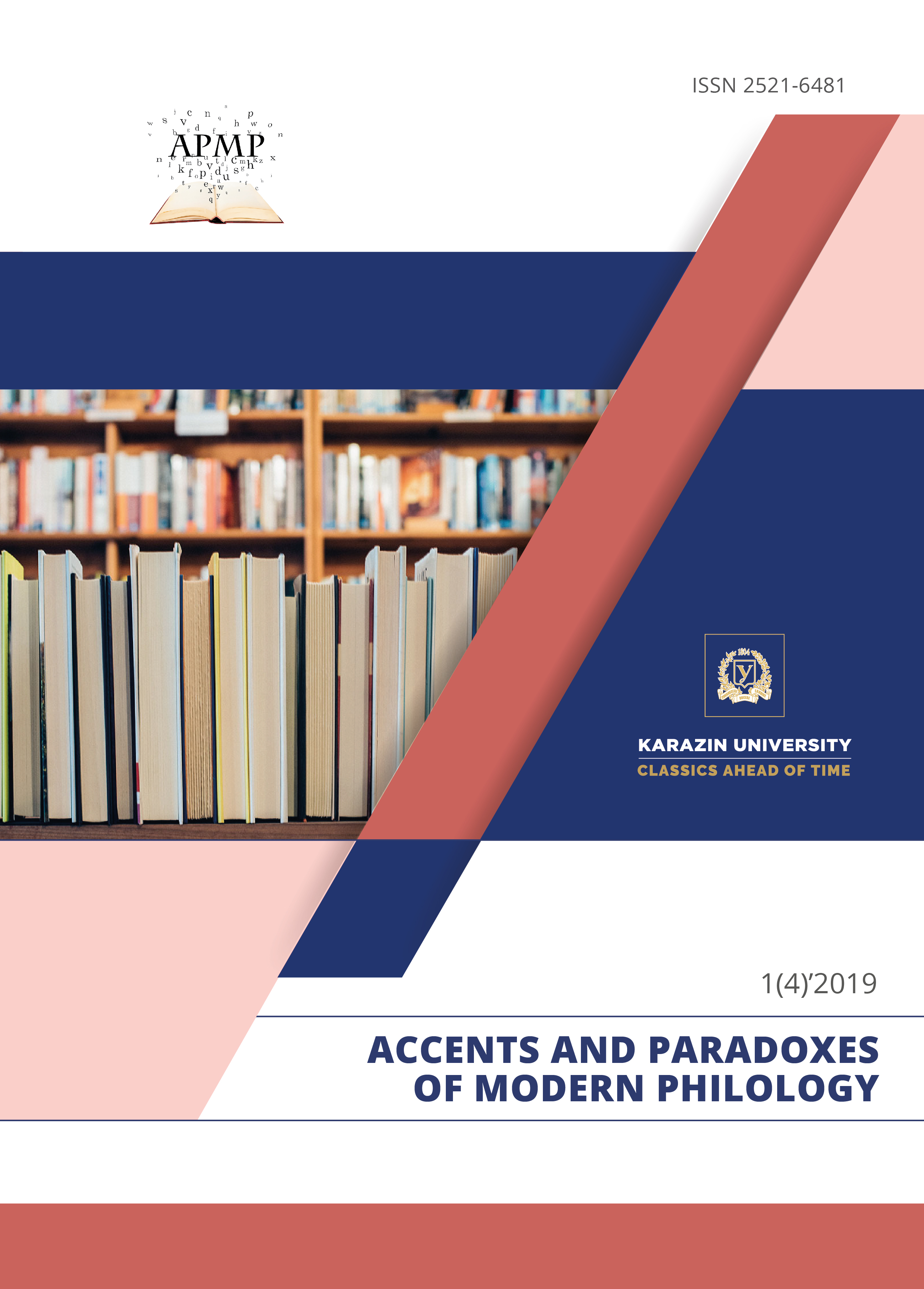Християнські ідеали і комуністична ідеологія в романі Еудженіо Корті «Червоний вершник»
Анотація
У статті розглянуто феномен творчості італійського письменника Еуженіо Корті, автора історичного роману «Il Cavallo Rosso» («Червоний вершник»). Зокрема проаналізовано специфіку його художнього способу та сюжетів. Історичний роман «Il Cavallo Rosso» описує 30-річний період італійської історії від довоєнного періоду до референдуму про розведення в післявоєнній Італії у сімдесяті роки, з огляду на що роман має низку цікавих особливостей. У статті увагу переважно зосереджено на проблематиці, що охоплює питання цінності людського життя та людства з бачення як християнських ідеалів, так і комуністичної ідеології. У цьому контексті роман видається особливо актуальним для сучасної України, оскільки демонструє, в який спосіб досвід війни може допомогти переосмислити національну ідентичність, значення історії та людського життя. Сама війна надала авторові можливість реалізувати своє завдання, а саме – відкрити істину про себе та про світ. Він зауважував, що війна може бути перевагою, оскільки вона оновлює людину, вчить її нескінченій кількості речей, виявляє в ній саме те, чим вона є, вчить по-справжньому знати людину. Прийняття реальності в тому вигляді, в якому вона є представленою, стає для Е. Корті можливістю реалізувати свою місію – усвідомити себе і стан людини в цілому. Динаміка наративу в романі «Il Cavallo Rosso» віддзеркалює саму динаміку життя: життя ніколи не зупиняється, люди ніколи не відмовляються від надії, вони продовжують пошуки нових і кращих відповідей та свої екзистенційні питання. У цьому ракурсі роман Е. Корті доцільно вважати історичним: не лише за схильністю автора (який дійсно жваво цікавився історією) бути точним щодо історичної достовірності фактів, а й за чудове вміння відтворювати у художній формі ті механізми, які історія створює в реальному житті. Завдяки своїй великій любові до реальності та бажанню її осягнути й донести до читача, Е. Корті відкрив своє літературне призначення: бути Свідком. Відтак, досліджений роман є тому яскравим підтвердженням, оскільки водночас розповідає життєвий досвід письменника та його генерації. Відштовхуючись від ключової мети роману «Il Cavallo Rosso» - осмислення Людини, історії, життя та його сенсу – в статті виокремлені такі поняття як «досвід», «свідчення», «анті-свідчення» як основні компоненти літературної і життєвої концепції автора.
Завантаження
Посилання
Caprara, M. (2000). La milizia dello scrivere. La trama del vero. Scritti in onore di Eugenio Corti. Missaglia: Bellavite, pp. 12–15.
Corti, E. (2017). Il Cavallo rosso. 33th ed. Milano: Ares, 1079 p.
Landoni, E. (2017). Il meraviglioso cristiano nello stile narrativo di Eugenio Corti. Al cuore della realtà. Eugenio Corti scultore delle parole. Novara: Interlinea, 141 p.
Livi, F. (2016). François Livi e la fortuna di Eugenio Corti in Francia. Retrieved from: https://www.eugeniocorti.net/?p=1080
Livi, F. (2017). Eugenio Corti e la Storia. Al cuore della realtà. Eugenio Corti scultore delle parole. Novara: Interlinea, 141 p.
Pichot-Bravard, P. (2015). Le regard porté par Eugenio Corti sur les totalitarismes dans «Le cheval rouge ». Revue des études italiennes, № 1–2 Janvier–Juin 2017. pp. 97–112.
Scaglione, P. (2015). La dialettica tra il particolare e l’universale nella narrativa di Eugenio Corti. Revue des ètudes italiennes, № 3–4 Juillet–Dècembre 2015. pp. 131–147.




